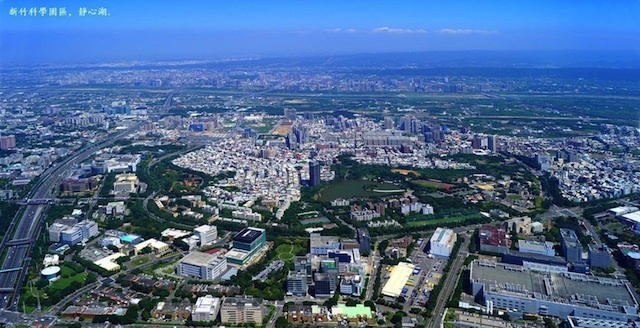
Advertisement

Lou Zacharilla: We try and reenergize communities and cities for the 21st century so kids can stay home, if they want to. What’s happening around the world is that young people are leaving their hometowns—especially if they’re small—even cities and they’re going places because they’re economic refugees. That is happening everywhere. We felt that rather than rely on national governments, who have not been doing anything except performing dysfunctional acts, that if we dealt at a local level with people and try to make home better, younger people would have a chance to stay there, if they wanted to. That would improve the community, and if it improved the community, some of these people could change things at the higher levels. It’s about looking at the post-industrial landscape and create a new renaissance or at least have a discussion about it.
Advertisement
The rents are already high, I know. But if young people are adventurous, they want to go live in other parts of the world, that’s fine. This year, Prospect and Sunshine Coast in Australia are on the list of top 21 cities and Australians say most Australian people want to come home at some point of their lives, like pigeons. But they didn’t feel like their communities were adequate places to come home to. They built a $43 billion broadband network so people can use digital tools to take their businesses home. That kind of thinking is new and is enabled by new technology. Home has been disintermediated in the past 60 to 70 years. For us, that’s interesting to explore.So do you think with stronger leadership and community indicators that people will be moving back to places on your most intelligent cities like Walla Walla, Washington has a population 32,000?
Well, people have already started coming home to Walla Walla. The guy who is their president of the chamber of commerce used to be a big-time entertainment lawyer in L.A., he said “I want to go home.” He saw some of our speeches and read our book, he said he would apply some of the principles up in Walla Walla – he said they could build a little paradise, if they do it right. Now, things are starting to happen there.How do you gauge or rate the intelligence of a city?
Well, we have the criteria; that’s the think tank-y stuff. Everyone likes numbers and metrics. I’m an English major, so I don’t even understand what my research people do. With the five criteria, it seems to be consistent in measuring the bigger and smaller cities. We use the Wharton school of hierarchical analytics (don’t ask what that means, it’s complicated to explain). We apply the five criteria that seem to be consistent in the 126 communities we’ve designated as intelligent – creating jobs, keeping kids home—things we think are virtuous. Those are the criteria which aspiring communities use to measure themselves. We don’t want them to all look like America or Europe, want them to work in their own culture.
Advertisement
We get a little grief about that. The real action is not in places like New York. We are looking at communities of 120,000, which are really cool cities where people are working together. They’re reactivating their cultures. Here is the deal: Every place has a culture, they do thing that is unique. Culture has been invested in us; nobody can take it away. People like to take it out of us, but if we go back in and pull it out like a natural resource, we can create enormous wealth and opportunities. That is a virtuous thing.Is there less room for play in the larger cities? In smaller cities, do you think there is more freedom?
And you can take chances, right? It is these smaller communities which are acting as laboratories that young people are doing these cool things. The big cities are run by the older guys. I’m not saying New York is not a great city, I love it here, but it is very siloed politically and it’s very difficult to do the things that are being done in these experimental off-the-radar cities.An intelligent city is experimental?
They are innovative. So many were hit hard in the post-industrial era and much of it has left. A lot were actually desperate. As Bob Dylan said, if you got nothing you got nothing to lose, they started experimenting with anything that worked. You go to Dundee, Scotland and that is where Grand Theft Auto was created. They developed the largest games industry in Europe. They were the largest ship building city in Europe in the end of the 19th century. They lost it; they went somewhere else. Now it is a haven in life sciences. Some innovative leaders had to make that happen.
Advertisement
The citizens are smarter than the mayor, hopefully. It is interesting because Mayor Ford poo-pooed their intelligent community status last year. He didn’t even attend our event. We had a top-seven cities event and Toronto was one of the top seven. Every city nominated in that top seven had their mayor come to New York to our think tank summit – except Toronto. He distanced himself because it was just those eggheads out there doing their thing. He wasn’t smart enough to embrace the intelligent community status. Toronto does well, despite its leadership. It is a classic case of a city led by a grassroots movement. You have people working on their waterfront project, their arts communities, driving the idea of a better future.Why was Hsinchu City, Taiwan chosen as one of the intelligent cities of 2014?
They have historically been a manufacturing center, as all Taiwan has become. But they are also the intellectual capital of the country. If you go to Taiwan and you really want to meet their writers or literate class, go to Hsinchu City. Now what they’re finding—and Taiwan is a really innovative place – and they’re saying intelligence and literacy has a lot to do with how they’re going to perform industrially in the 21st century. Knowledge is overlaid over everything they do, from machinery design to performance-enhancing devices they’re making there. Like Apple, they pay a lot to the art. If you were an intellectual, you were sent out to a coffee shop, if you were a factory worker, you were sent to a factory. Now, they are starting to blend them.This may help these cities with tourism, by no accident?
The economic development people of these cities love us because we point out their city and the rest of the world goes: “What? Where?” Last year we featured Oulu, Finland, location of the Nokia headquarters. When we started talking about how great it is, people start going there. We encourage it because, as one report said, by 2050, the most dominant cities in the world are the ones you’ve never heard of because they’re doing the kind of stuff we’re talking about. I do want people to look at places considered the middle of nowhere, just to see what kind of experimentation human beings are capable of.New York mayor Bloomberg warned that in 50 years, New York could look like Detroit.
I hope not. Detroit never thought it was going to become Detroit. Windsor, across the water from the Detroit River, could have easily become Detroit, as well could have Eindhoven, where I’m going in January. We better watch out, we better economies now and take the pain now. It’s about arresting the disease before it spreads throughout the body. Detroit didn’t get down that path, now only 30 percent of the kids graduate from high school. It’s an awful problem.@nadjasayej
